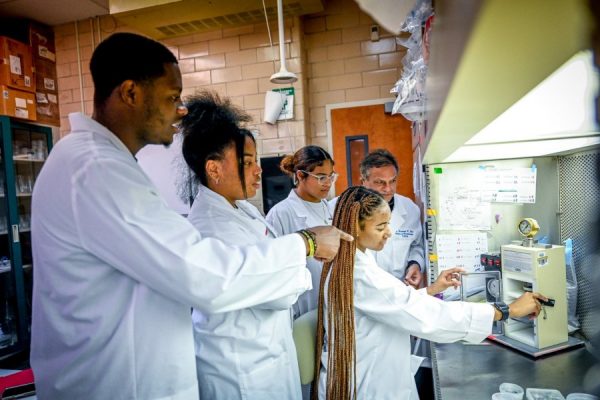The U.S. Department of Agriculture’s (USDA) National Institute of Food and Agriculture has awarded a $650,000 grant to Dr. Satya Swathi Nadakuduti, a researcher specializing in plant biotechnology and biochemistry at the University of Florida Institute of Food and Agricultural Science (UF/IFAS). This grant will support Dr. Nadakuduti and her team in their groundbreaking study on the genetics of kratom, a plant known for its complex alkaloid profile.
Research Focus
Dr. Nadakuduti’s research aims to unravel the genetic mechanisms behind kratom’s alkaloid production. To date, over 50 alkaloids have been identified in kratom leaves, which have been traditionally used for hundreds of years with few adverse events reported outside of mild dependency. However, recent developments in kratom extract products have significantly altered the balance of these alkaloids, creating substances that differ markedly from the natural leaf form.
Potential Impact
The study could pave the way for increased production of pure alkaloids for future research. Currently, scientists rely on extracting alkaloids from raw kratom materials, a process that is both costly and time-consuming. By understanding the biosynthesis of these compounds, Dr. Nadakuduti’s work could support drug development and potentially offer solutions to the opioid crisis.
“Understanding their biosynthesis makes it possible to support drug development, and they could meet emerging and future markets as a solution to the opioid crisis,” said Dr. Nadakuduti in an interview with The Apopka Voice.
About UF/IFAS
The University of Florida Institute of Food and Agricultural Science (UF/IFAS) is a leading institution in agricultural research and education. UF/IFAS integrates multidisciplinary approaches such as biochemistry, genomics, and gene discovery to understand the chemical diversity of medicinal compounds and their biosynthesis. The institute’s work spans various fields, including plant breeding, genetics, and biotechnology, with a focus on improving agricultural crops and developing valuable gene-edited products.

USDA’s Role
The USDA’s National Institute of Food and Agriculture (NIFA) supports research, education, and extension programs in the food and agricultural sciences. NIFA’s grants aim to address key issues related to agriculture, food, the environment, and communities. By funding projects like Dr. Nadakuduti’s, NIFA helps advance scientific knowledge and innovation in agriculture.
This collaboration between the USDA and UF/IFAS highlights the importance of scientific research in addressing public health challenges and advancing agricultural practices.
Implications for Europe
While the grant is U.S.-based, its implications extend globally, including to Europe. Kratom use has been growing in Europe, where its popularity has grown significantly over the last few years. The research funded by this grant could provide valuable insights into the safety and efficacy of kratom, influencing regulatory decisions and public health policies in European countries.
European Research and Regulation
European researchers and policymakers are closely monitoring developments in kratom research. The findings from Dr. Nadakuduti’s study could inform European regulatory frameworks, potentially leading to more standardized and safer kratom products. This could also spur collaborative research efforts between U.S. and European institutions, enhancing the global understanding of kratom’s therapeutic potential.



